Who are the "big six" energy companies?
- Published
Half a dozen major energy companies have come to dominate the market in the UK, supplying about 95% of all household gas and electricity. But who are they?
Known as the "big six", their activities leave only a tiny proportion of the market to be served by a clutch of smaller suppliers.
The big six are:

British Gas
Size and ownership: British Gas is the UK's largest domestic energy supplier. It operates as Scottish Gas in Scotland. It has nearly 10 million domestic customers in the UK.
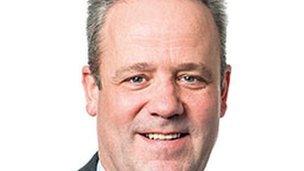
Chris Weston is managing director of British Gas
It is part of the British-owned Centrica Group, a huge company also involved in gas and oil exploration and production.
Centrica employs 33,000 people in Britain.
Latest price announcements: British Gas raised its prices for its dual-fuel customers by 9.2% in November. That included an 8.4% increase in gas prices and a 10.4% rise in electricity prices.
Average household dual-fuel bills were estimated to rise by £123 to £1,444 a year as a result.
It then reduced dual fuel prices by 3.2% on 1 January owing to the government's reduction of green levies.
Profits: £571m for domestic supply in 2013.
Boss: Chris Weston has been managing director of Centrica's international downstream operation, which includes British Gas, since 2009. He joined Centrica in 2001 from Cable and Wireless and has a PhD from Imperial College.

Npower
Size and ownership: Npower is part of the German power giant RWE, which is one of the five largest gas and electricity companies in Europe.
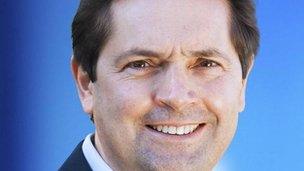
Paul Massara is chief executive of Npower
It has about 3.5 million customers in the UK and is one of the major providers of energy used in the UK.
Last year RWE decided against building any new nuclear power plants in the UK.
Latest price announcements: It announced the biggest increase in dual-fuel bills last winter. The average dual-fuel bill rose by 10.4% on 1 December.
This included an electricity price rise of 9.3% and a gas price rise of 11.1%.
Then, owing to the green levies change, it dropped prices by 2.6% on 28 February.
Profits: £134m for domestic supply in 2013.
Boss: Paul Massara has been chief executive of Npower and RWE's representative in the UK since January 2013. Before joining Npower in 2011, he was president of Genesis Capital Corporation, a private equity business based in Toronto.

SSE
Size and ownership: SSE was formed in 1998 after the merger of Scottish Hydro and Southern Electric. It later added Swalec to the stable.

Alistair Phillips-Davies is chief executive of SSE
It also generates power, like the other major UK suppliers, and employs about 18,500 people in the UK.
Latest price announcements: It kicked off the round of winter price rises when it announced an 8.2% rise in household dual-fuel prices.
The green levy change brought a 3.5% reduction on 24 March.
Then, in an eye-catching move, it vowed to keep its variable tariffs frozen at current price levels until 2016.
Profits: £318m for domestic supply 2012-13.
Boss: Alistair Phillips-Davies has been chief executive of SSE since 1 July 2013 having joined the energy company in 1997. He was appointed to the board in 2002 as energy supply director before becoming deputy chief executive in 2012. He has a degree in natural sciences and is a qualified chartered accountant.

Scottish Power
Size and ownership: Scottish Power became part of the Spanish energy giant Iberdrola in 2007 and is one of the largest UK energy suppliers.
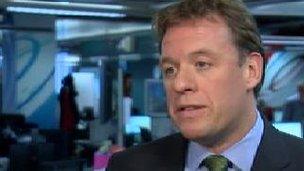
Neil Clitheroe is chief executive of retail and generation at Scottish Power
In 1995, Scottish Power bought Manweb - the Merseyside and North Wales Electricity Board.
Latest price announcements: Scottish Power announced an average dual-fuel bill increase of 8.6% on 6 December.
This included a gas price increase of 8.5% and an electricity price rise of 9%.
This was followed by a cut of 3.3% at the end of January, owing to the green levies change.
Profits: £128.5m for domestic supply in 2012.
Boss: Neil Clitheroe, chief executive of retail and generation. His own LinkedIn profile says he is an "energetic transformational leader".
He has been with Scottish Power since 1995.

E.On
Size and ownership: The UK arm is part of the German E.On Group, and was previously known as Powergen before taking the group's name in the UK in 2007.
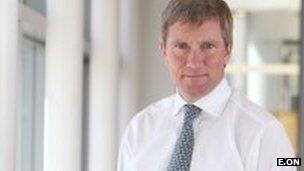
Tony Cocker is the chief executive of E.ON UK
It employs 12,000 people in the UK and 79,000 worldwide.
It also generates power, including a wave power generator. Like RWE, it recently ruled out building a new nuclear plant in the UK.
Latest price announcements: E.On increased prices for dual-fuel customers by 3.7% on 18 January.
Its rise was lower than the other suppliers, because it made the move after the government had announced the changes to green levies.
Profits: £296m for domestic supply in 2013.
Boss: Tony Cocker, chief executive of E.On UK, has been in his current role since 2011. He studied mathematics at Oxford and previously worked for brewery company Bass.

EDF
Size and ownership: Its UK operations are a wholly owned subsidiary of EDF Energy, which is a French state-owned energy company.
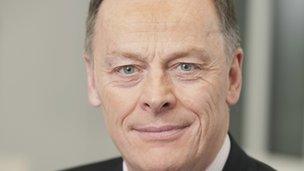
Vincent de Rivaz is chief executive of EDF Energy UK
It supplies about 5.5 million domestic and business customers in the UK.
EDF runs eight nuclear power stations in the UK, and recently announced it would lead a consortium, which includes Chinese investors, to build the Hinkley Point C nuclear plant in Somerset.
Latest price announcements: EDF announced a 3.9% rise in energy prices, raising the average dual-fuel bill by £49. This included a 4.6% gas price rise and a 3.7% electricity price rise.
This was also among the lowest price changes and was reliant on the government scrapping its green levies.
Profits: £92m loss for domestic supply in 2012. The company is expecting a further loss for 2013 when it releases its figures.
Boss: Vincent de Rivaz is an engineer by training and joined EDF in 1977 to build dams in Latin America and Africa. He became head of UK operations in 2002, before becoming chief executive in 2003.
Profits are based on earnings before interest and tax (EBIT) supplied to Ofgem